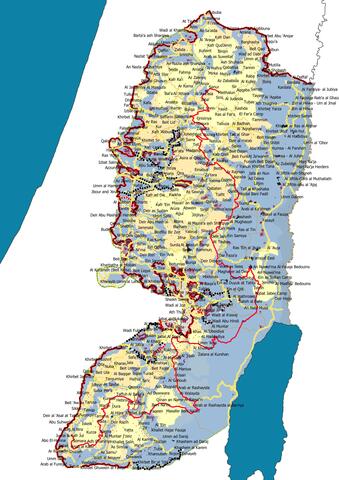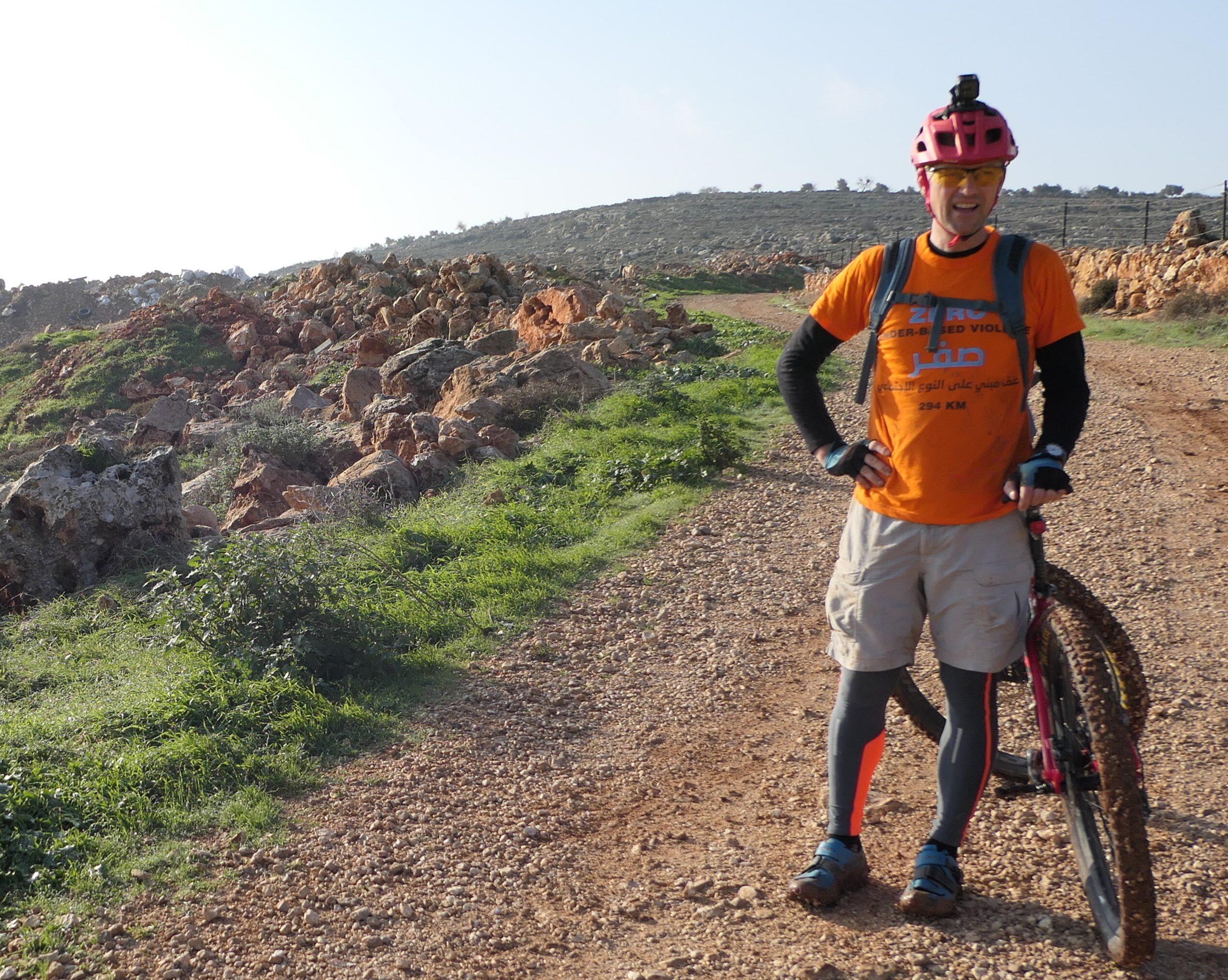What’s one survivor of gender-based violence? What’s ten? What’s a million? How do you give the number humanity to reveal the lives it hides?
gender-based violence. Photo ©UNFPA_Palestine
Anders Thomsen, head of Palestine Country Office at UNFPA, the UN agency for reproductive health, decided to bike on the length it would take if all women survivors of gender-based violence in Palestine stood side by side, a meter apart, holding hands. It took him four days to cover 294 kilometers by bike, one meter for each of the 294,000 women survivors of gender-based violence in Palestine according to the Palestinian Central Bureau for Statistics.
“They have names. They are people. On the third or fourth day, the number started to really sink in. I was getting tired. It was very, very far. At some point I thought the statistic must be wrong. Standing next to each other, they would form an unimaginably long human chain,” Thomsen reflected.
Biking with his friend, Marcin Pius, Thomsen wanted to make a statement about the magnitude of the problem and to give it a physical manifestation that would make it difficult to dismiss as anything but a nation-wide crisis.
On the road, Thomsen met a young woman who told him she wished she could bike as well.
“She asked me what my bike’s name was and I told her I would name it after her. So, my bike is now called Manar,” Thomsen said, “I did it to remember the small, but significant dreams that drive our efforts to help women and girls express themselves physically through sports, whether it is soccer or running or biking. It is part of the healthy lifestyle we try to make possible through our youth programmes.”
She reminded him of Aya, a 15-year-old girl from Gaza who, in a recent video interview with UNFPA, said Gazan girls find simple dreams like riding a bicycle impossible. In the same video, another Gazan young woman, 24-year-old Ibtihal, said her biggest dream was to visit the West Bank.
“I was almost heart-broken when I saw that,” said Thomsen, recalling Ibtihal’s answer. “Even in the West Bank, you have settler roads, you have fences, you have fear. People isolate themselves in their own villages and don’t want to go out of their communities out of fear.”
The protracted humanitarian crisis, the military occupation and the fear, Thomsen thinks, cannot be separated from trying to understand gender-based violence in the Palestinian context.
“These external factors cause a lot of different problems: lack of self-esteem, lack of employment, sometimes humiliation at checkpoints, violence in general. There is violence everywhere, all the time. This is probably a compounding factor when it comes to gender-based violence because it is all taken out on women,” Thomsen explained.

Ibrahim, a hiking trail in the West Bank
©UNFPA_Palestine
The response from people Thomsen met on the road, partners and Palestinian officials in particular, was overwhelming. The day after the four-day ride, Thomsen was invited to a ceremony at the Palestinian Medical Relief Society where he received an honorary award in recognition for his contribution by three Palestinian ministers. Palestinian news outlets ran features covering the ride which took place at Masar Ibrahim, a hiking/biking trail extending from the north of the West Bank to the south. Plans are already underway with partners and youth groups to turn the experiment into a national initiative where every community organizes a bike ride of a meter per survivor.
Reflecting on the reasons behind the celebration of his initiative, Thomsen said it was because the ride was also a tribute to Palestine and the Palestinian people.
“It was really amazing to see the very diverse nature of Palestine in the most remote areas where very few people have the opportunity to go,” Thomsen said, “And I hope everyone both nationally and internationally will have the opportunity to come visit and do the same because we want people to see the beautiful side of Palestine.”


